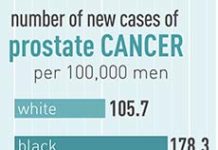When we’re searching for a little bit of flavor to add to a dish, sometimes we go for the butter or margarine. While it may be tasty, a new study finds that switching to olive oil may be better, as it provides protection against mortality from a slew of diseases.
Researchers from the Harvard T.H. Chan School of Public Health studied the diets and health metrics of nearly 100,000 people over three decades. According to their findings published in the Journal of the American College of Cardiology, those who consumed the most olive oil had lower all-cause mortality, as well as lower mortality caused by specific diseases, including Alzheimer’s, cancer, and cardiovascular disease. These are encouraging results, particularly for Alzheimer’s.

In an accompanying editorial posted in the same journal, Uppsala University epidemiologist Dr. Susanna Larsson says, “In a sensitivity analysis, the authors found a significant 27% reduction in risk of dementia-related mortality for those in the highest vs lowest category of olive oil consumption. Considering the lack of preventive strategies for Alzheimer’s disease and the high morbidity and mortality related to this disease, this finding, if confirmed, is of great public health importance.”
To gather the findings, the team looked at the health of 60,582 women from the Nurses’ Health Study and 31,801 men from the Health Professionals Follow-up Study. Both ran from 1990 through 2018. In addition to health metrics being tracked, participants were given a food questionnaire every four years.
Throughout 28 years of follow-up, 36,856 participants died. Among those who consumed higher amounts of olive oil – more than half a tablespoon a day – all-cause mortality was 19% lower than the those who consumed the smallest amounts of olive oil. They also had a 17% lower risk of dying of cancer, a 19% lower risk of dying of cardiovascular disease, a 29% lower risk of death from neurodegenerative disease, and an 18% lower risk of dying of a respiratory disease.

Additionally, when replacing three-quarters of a tablespoon of margarine, butter, mayonnaise, and dairy fat with an equivalent amount of olive oil, there was between an 8% and 34% lower risk of all-cause and cause-specific mortality. This did not apply when it replaced other vegetable oils, however, meaning they may provide a similar benefit.
There are limitations to the study, including that there could be confounding factors involved in the impacts seen with small to moderate amounts of olive oil consumption.
Larsson adds in her editorial, “The current study and previous studies have found that consumption of olive oil may have health benefits. However, several questions remain. Are the associations causal or spurious? Is olive oil consumption protective for certain cardiovascular diseases (eg, stroke and atrial fibrillation) only or also for other major diseases and causes of death? What is the amount of olive oil required for a protective effect?”

She says these and other questions should be investigated in future studies.
![]()
Provide Mammograms
Support those fighting Breast Cancer at The Breast Cancer Site for free! →
Whizzco Source








